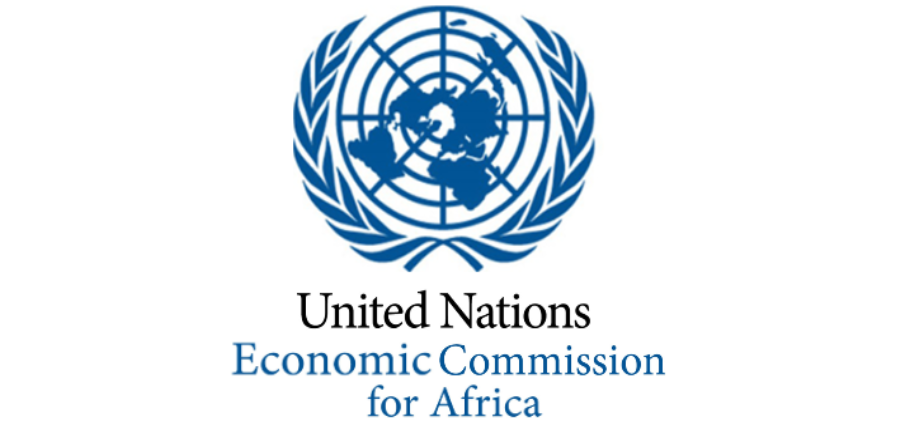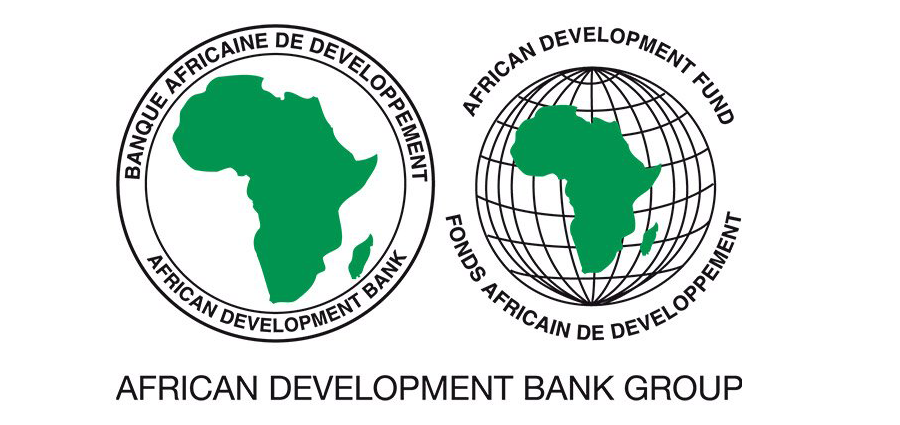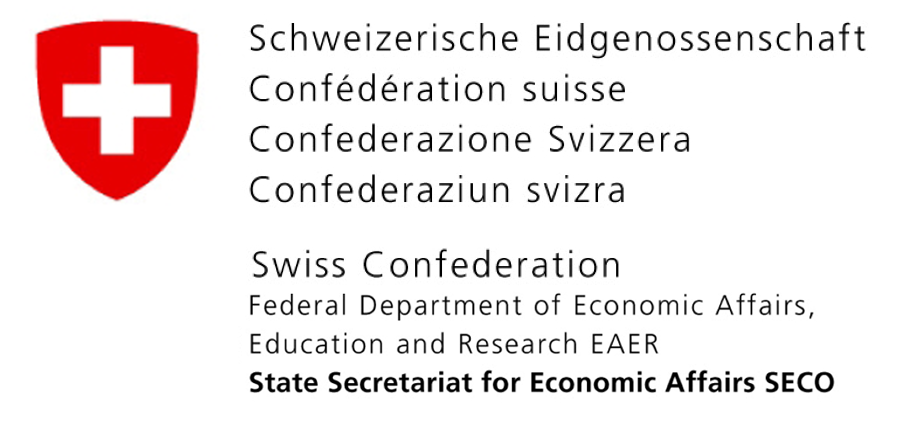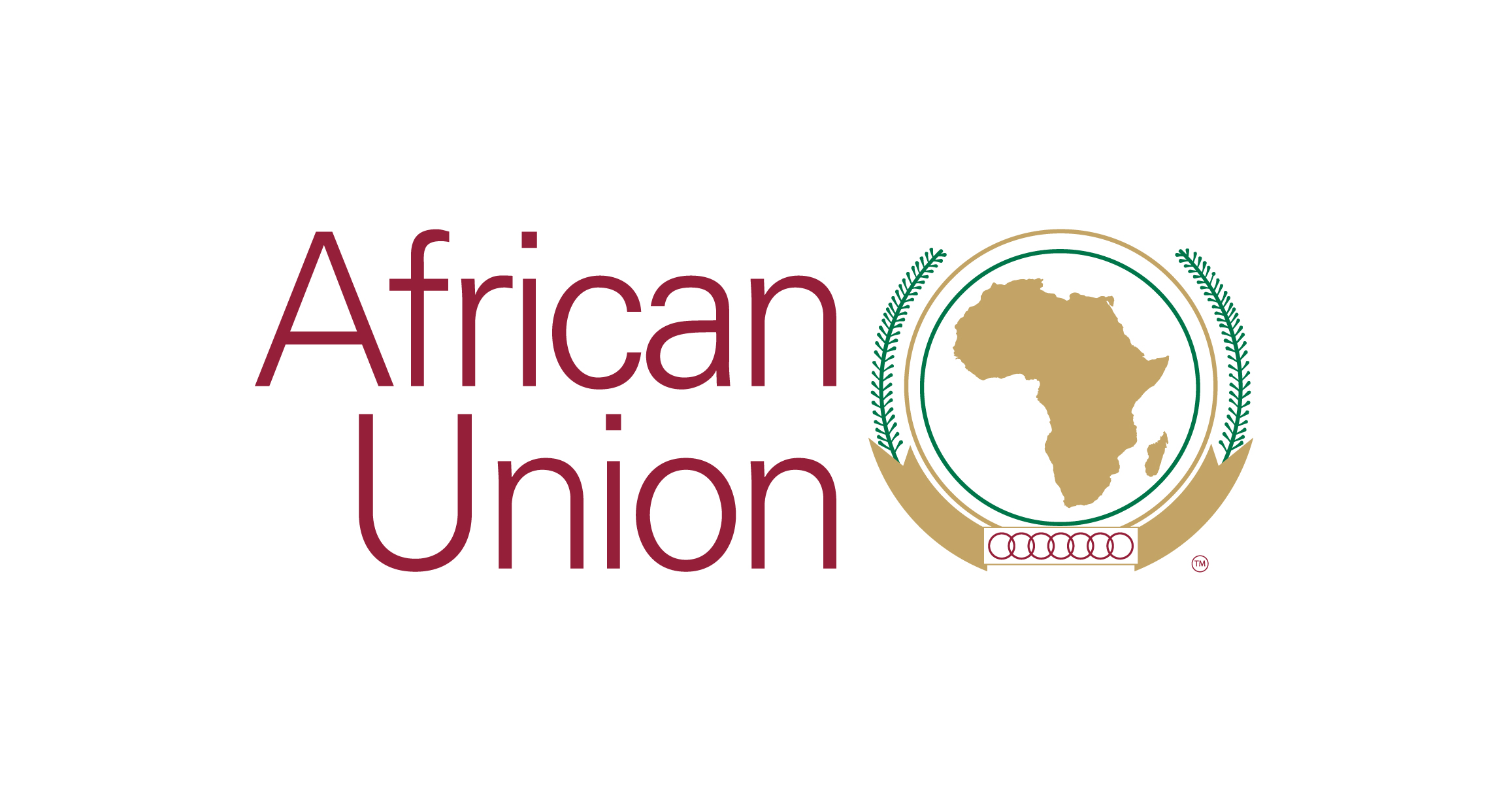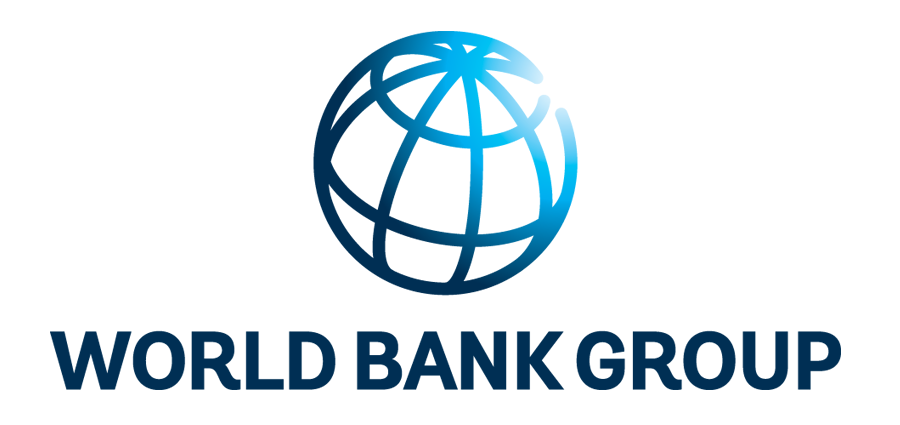Road Agencies
In recent years, the Road Management and Financing (RMF) component of SSATP has focused on strengthening the capacity of regional road associations to play an increased leadership role in advocating for reforms aimed at improving the efficiency and effectiveness of road network management in SSA. In this regard, the African Road Maintenance Fund Association (ARMFA), the Association of African Road Managers and Partners (AGEPAR), and the Association of Southern Africa National Road Agencies (ASANRA) are key SSATP partners.
The RMF component focuses on improving the efficiency and capacity of the roads sector by promoting the creation of road agencies as autonomous entities in line with the principles of the Road Management Initiative's (RMI) four building blocks underpinning the sustainable management of road networks. Road agencies and/or authorities are needed to complement financing innovations undertaken through Road Funds if there is to be a lasting improvement in the road sector. Experience has shown that restructuring road departments under their parent ministries does not create the expected impact because of too many remaining constraints, thus preventing the full use of existing technical capacity. While approximately 20 road agencies have been established since 2000, broadly in line with the principles of RMI, these agencies ultimately remain within the oversight of government. However, they operate at arm’s length as autonomous or semi-autonomous entities in order to obtain the potential efficiency, accountability and transparency normally attributable to private sector management. The agencies were established with the main objective of being more consumer-oriented and market responsive than the largely politically driven, traditional government road agencies. Key features include a sound, enabling legal framework, a strong focus on commercialized management practice, reliable information management systems, and effective interaction with road users. Characteristics of stages in road agency reforms are summarized in the attached table.
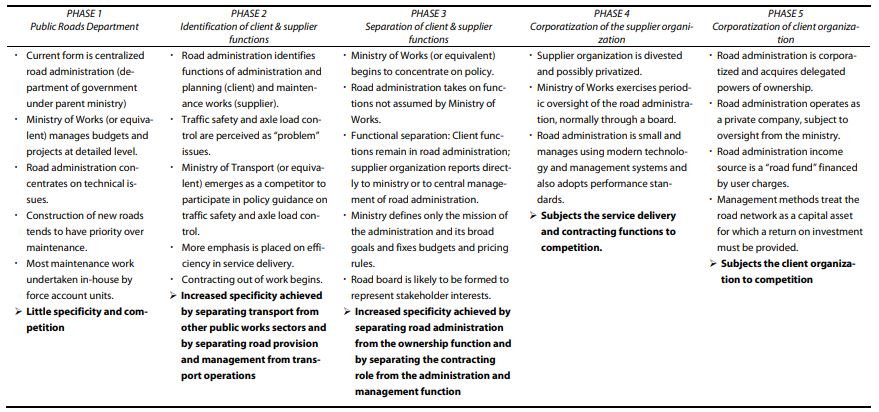
In order to assess progress in road sector reforms, SSATP conducted a systematic review of the performance of road agencies in 2010 and published ‘Progress on Commercialized Road Management in Sub-Saharan Africa’ in 2012. The analytical work covers road agencies in seven countries, focusing on three out of the four building blocks of the RMI blueprint: responsibility, ownership and management. The study also attempts to define criteria which allow for the quantitative measurement and comparison of road sector performance across countries, and provides the basis for SSA countries to further improve their road management and financing practices. The countries surveyed are all at different stages of commercialized road management practices, ranging from little (if any) progress in agencies that still operate within a bureaucratic government environment to excellent progress in countries that operate largely in line with the commercialized management practices. The survey indicates that progress in road management reforms in SSA could best be described as “a road partially traveled” due to the many instances of deviation from the recommended RMI good practices. However, despite the challenges faced, in general, the institutional reforms have had a discernible impact on improving road management practices.

